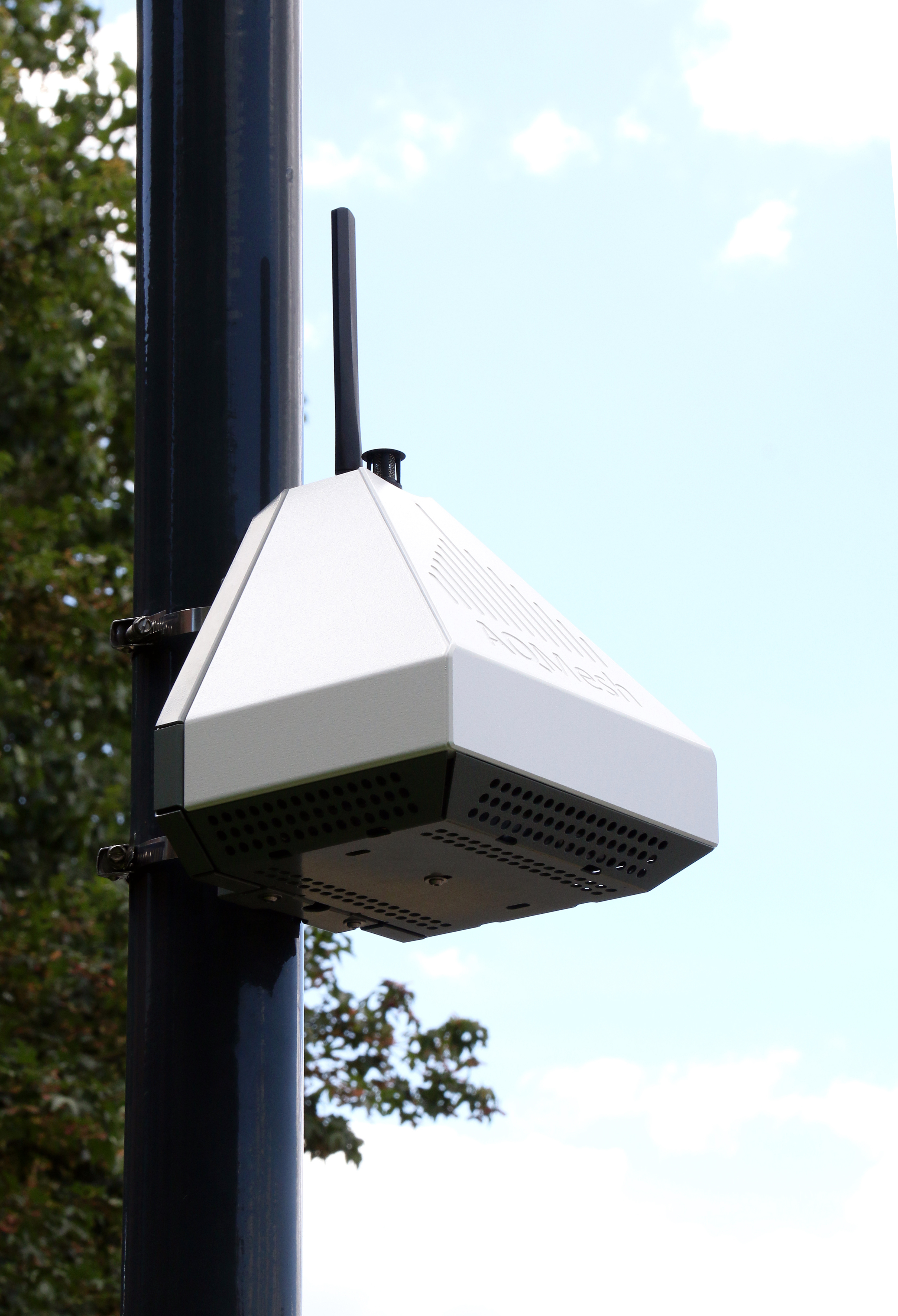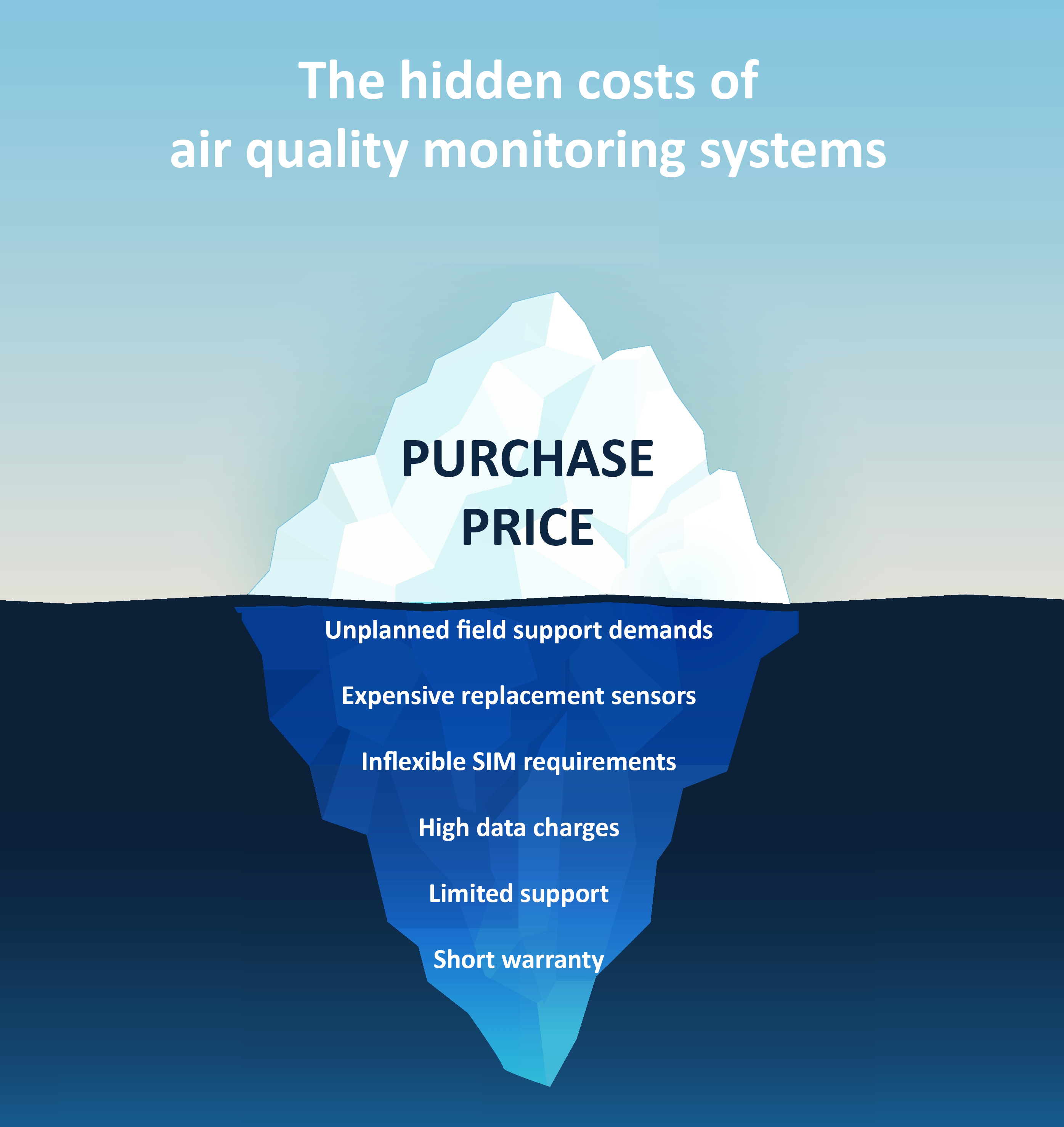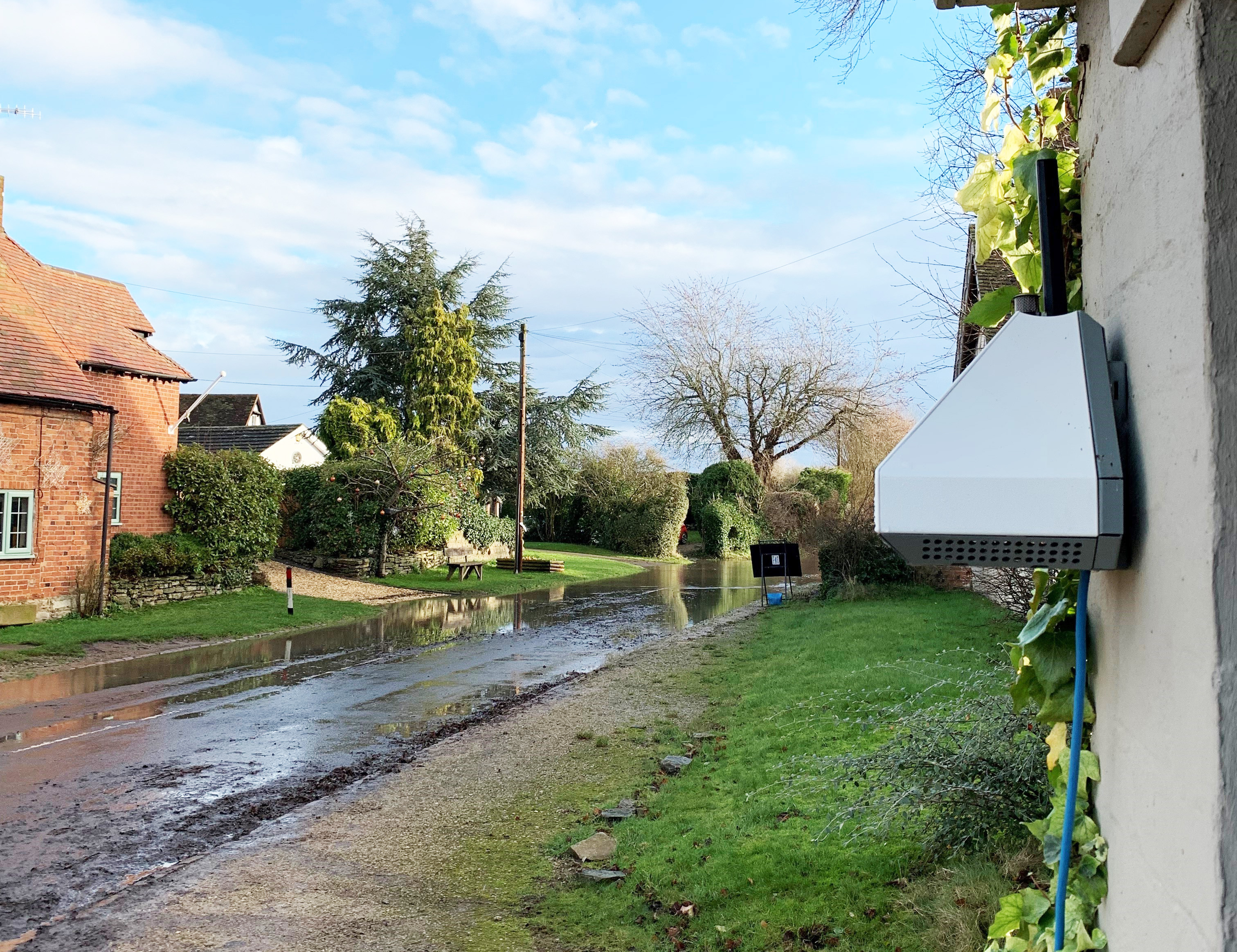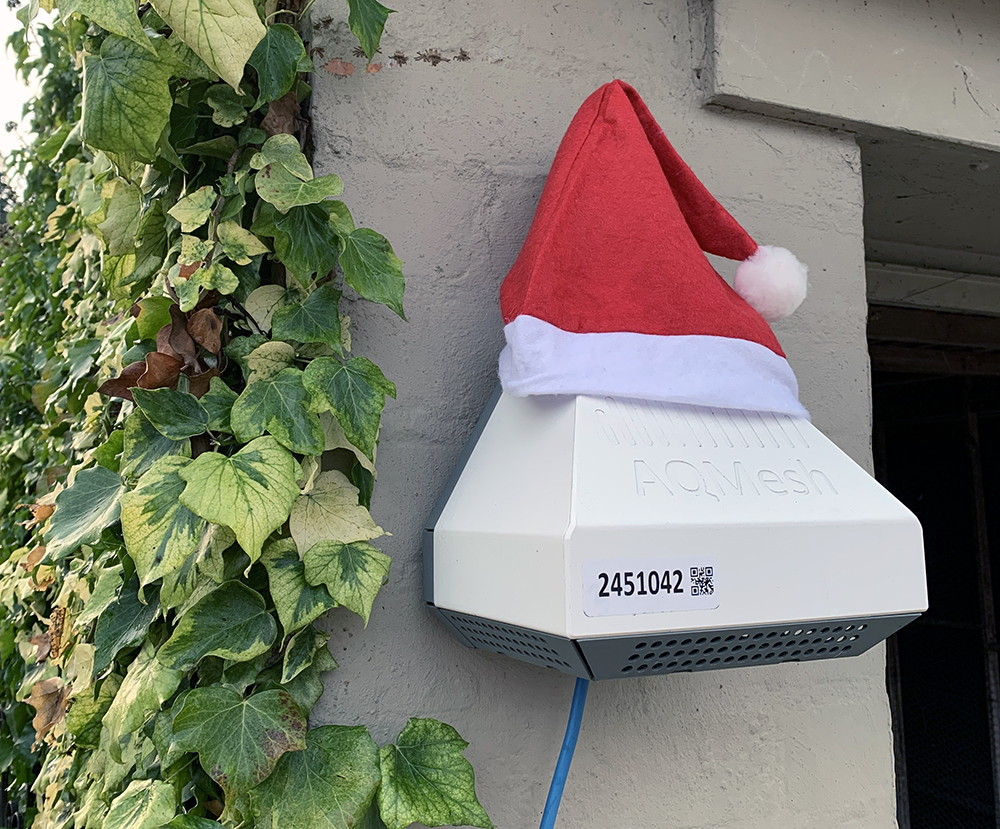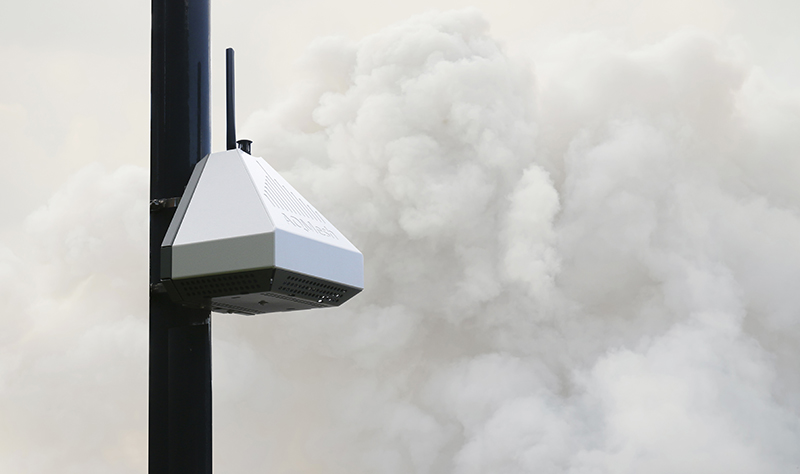 Two AQMesh pods measuring airborne particulate matter have been loaned to the University of Cambridge, ahead of the COP26 meeting in Glasgow, to support research into measurement of particulate matter. The pods have been monitoring PM1, PM2.5, PM4, PM10 mass estimates and Total Particle Count, since April 2021. The team from the University of Cambridge, led by Professor Rod Jones, are using data from these units, which have the heated inlet option to minimise the effect of air moisture on readings, to support their work on understanding differences in chemical composition between particles.
Two AQMesh pods measuring airborne particulate matter have been loaned to the University of Cambridge, ahead of the COP26 meeting in Glasgow, to support research into measurement of particulate matter. The pods have been monitoring PM1, PM2.5, PM4, PM10 mass estimates and Total Particle Count, since April 2021. The team from the University of Cambridge, led by Professor Rod Jones, are using data from these units, which have the heated inlet option to minimise the effect of air moisture on readings, to support their work on understanding differences in chemical composition between particles.
The compact small sensor air quality monitoring system, designed to measure levels of pollutant gases in ambient air, also offers a non-dispersive infrared (NDIR) carbon dioxide (CO2) sensor, providing accurate outdoor CO2 measurements. As well as monitoring deviations in background levels of CO2, analysis of data from the system can also identify combustion plumes and provide an indication of whether the gases are being produced by a local or distant source, and from which direction.
Professor Jones has previously used CO2 data from AQMesh pods during the Breathe London pilot project, in conjunction with other AQMesh gas measurements. AQMesh offers a range of ambient air measurements relevant to climate change studies, including NOx, SO2, CO, CO2, Black Carbon, TVOC and methane. The Ecotec group – which owns AQMesh – specialises in methane leak detection and gas stream methane monitoring. Applications include pipeline methane measurement for energy-from-waste on landfill, biogas, waste water treatment and agricultural sites. Methane leaks are also detected using a range of laser-based sensors, providing a critical resource for methane-generating operations, including the oil and gas industry.
COP26 is the upcoming 26th United Nations Climate Change Conference, taking place in Glasgow, Scotland between 31st October and 12th November 2021. The aim of the conference is to progress global efforts towards the goals the UN Framework on Climate Change and the Paris Agreement – the legally binding international commitment to reduce carbon emissions, agreed at the COP21 conference in 2015.
CO2 emissions are a key factor in climate change and are largely caused through the burning of fossil fuels such as coal, gas and oil, which are burned to generate heat and electricity for the world’s power plants, cars, planes and industrial facilities, to name a few. Monitoring CO2 emissions is therefore vital in understanding, managing, mitigating and reducing sources of CO2 and its impact on the atmosphere and environment. Methane is an even more potent greenhouse gas and prompt identification of methane leaks is a critical part of the action plan to reduce greenhouse gas emissions.
AQMesh is an air quality monitoring ‘pod’ which can be mounted on a post, wall, fence or other position to measure ambient air pollution. Each pod measures about 20cm / 8 inches in each direction and weighs about 2Kg / 4lb. Sensor data is securely transmitted using the global mobile phone network to a cloud server, where carefully developed corrections for environmental conditions are made and data accessed by secure web login or API. Sensor options are offered on the basis that the level of sensitivity and selectivity for the target pollutant are fit for purpose, whether directed towards local air pollution or climate change pollutant monitoring.
-----
Read more AQMesh case studies and news.
Browse independent AQMesh studies.

